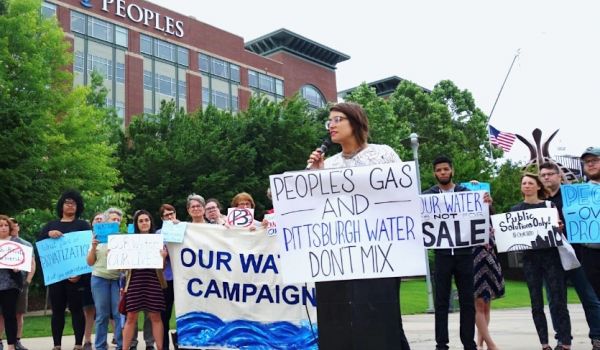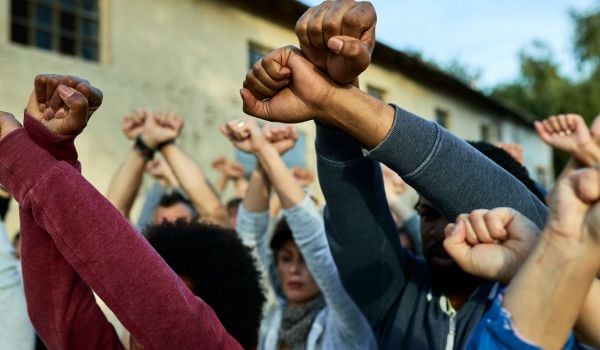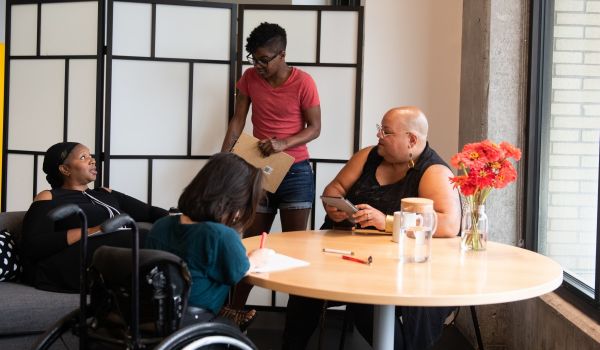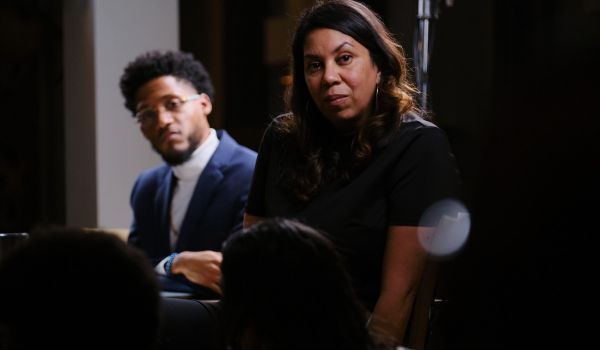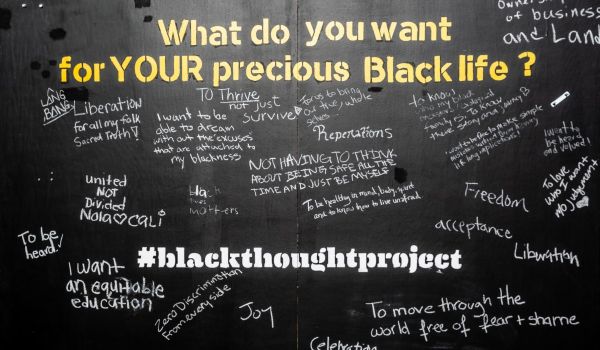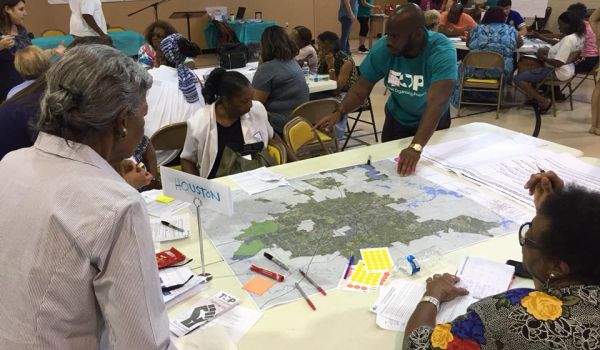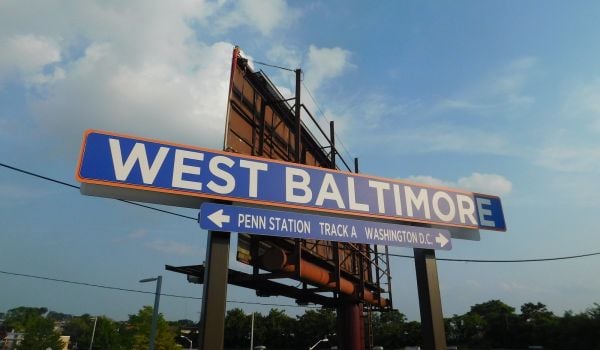EDITOR’S NOTE: “Hear Us” is a column series that features experts of color and their insights on issues related to the economy and racial justice. Follow us here and at #HearUs4Justice.
In May, 246 years ago, 56 wealthy white men gathered representing 13 colonies on the issue of American independence.
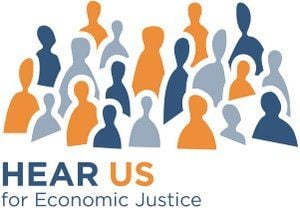
Many of the delegates in the Second Continental Congress had the wealth and time to pour into governance because of the free labor provided by the human beings they enslaved. But the impact of unpaid Black labor extended far beyond the personal wealth of the Southern planters in the room. The very wealth of the newly forming nation they conspired to protect was the result of forced Black labor.
Robert Morris, a Philadelphia merchant who served as the United States Superintendent of Finance — the appointed office that would later become the Secretary of the U.S. Treasury — funded the American Revolution and used his own personal wealth to ensure critical war-time loans from the French. Like many of his contemporaries, Morris was a slaver. And while he is not recorded as owning individuals, his company, The Willing Morris & Company, did participate in the slave trade. The American Revolution was financed by Black forced labor.
The most American truth is that the stolen, and later coerced and exploited, labor of Black workers has underwritten the United States’ survival and its successes. Black labor grew an agricultural empire. It built the physical infrastructure of a young nation. It fulfilled the most dangerous and backbreaking jobs that allowed for rapid industrialization. Today, the labor of Black workers deemed “essential” is intentionally undervalued in order to subsidize our service economy. Ultimately, without the institutionalized ability to wield Black labor for profit, we would not be celebrating the Fourth of July, eating hotdogs and watching fireworks.
Given the current backdrop that spans the congressional hearing on the January 6th insurrection, the Supreme Court’s commitment to dissolving individual liberties, and rumblings of an economic recession, this Fourth of July certainly serves as a moment to reflect: How did we get here?
The wide range of issues dominating headlines may appear disparate, but these issues all connect back to controlling labor, specifically Black labor.
In many ways, the Supreme Court’s Dobbs decision is about the ability of birthing people to choose how they participate in the economy on their own terms. As Tressie McMillan Cottom noted, “Abortion access afforded women more and better economic opportunities, and those economic opportunities made women more valuable in the eyes of the law.” Economist Kate Bahn explains how restrictions on abortion access will directly affect the ability of workers to organize and ultimately their ability to exercise power in the workplace and labor market.
Similarly, the Federal Reserve Board’s decision to pursue interest rate hikes is also a decision to restrict the power of workers. In testimony in front of the Senate Banking Committee, Federal Reserve Bank Chair Jerome Powell noted that there was a shortage of workers and an excess of jobs, arguing that raising interest rates would help to “get the labor market back into balance” by increasing the number of unemployed workers.
Why is labor so important?
In a country without guaranteed income, where basic needs like housing and access to food are controlled by corporations, and with a meager social safety net, participation in the labor market is, more often than not, a necessary condition of liberty. That means any legislation, judicial ruling, or administrative policy that restricts the ability of workers to decide how they engage with and employ their own labor is a restriction on their ability to live freely.
Just as the Dobbs decision will disproportionately limit the choices of Black workers, specifically Black women and Black birthing people, the Fed’s choice to make workers and families poorer by creating forced unemployment will also have a profound and disproportionate effect on Black workers and their families. Whether for economic, social, or health reasons, Black workers will be forced to take jobs that offer less money, give them less power in the workplace, and diminish their right to self-determination.
As it has been since before the formation of this nation, Black labor is invaluable, while Black laborers themselves are expendable.
The question is not, “How did we get here?” but rather, “How did we get here, again?”
Calling today’s current events “unprecedented” is ahistorical. We are facing challenges to civil liberties and basic tenets of democracy because we have largely left the historical tools that have been used to control body and labor unchanged. This is not hyperbole. Recently, the ACLU published a report that found that U.S. prison labor produces $11 billion in goods and services each year, while prisoners earn literal pennies. In many states, undervalued labor performed by incarcerated individuals is essential to fulfilling basic public needs, effectively subsidizing low or nonexistent tax rates. The disproportionate impact that penal labor has on Black people is well-documented. Time and time again, this country has decided against democracy and the pursuit of liberty for all peoples and has instead chosen to protect accumulated wealth.
The current attack on rights may feel novel to many, but that’s largely because this country has a very short and very selective memory. We tend to believe that the worst is unimaginable and that the past occurred in a vacuum.
So, on this Independence Day, I choose to honor the tradition of Black labor which has been the bedrock and the cornerstone of the United States long before it even had dreams of becoming a republic.
To celebrate, I will recommit myself to the pursuit of the adoption of the Black Worker Bill of Rights — created by the Black Worker Policy Coalition, which seeks to ensure that all Black workers have dignity at work with safe, healthy, and equitable job conditions:
The Black Worker Bill of Rights
All Black workers have the following rights in the job market and workplace:
-
The Right to Organize
-
The Right to Resources and Information that Address Barriers to Employment
-
The Right to Assert Your Rights and Have Your Rights Enforced
-
The Right to Equitable Wages and Compensation that is Owed
-
The Right to Career Advancement Opportunities
-
The Right to Workplaces Free from Discrimination, Harassment, and Other Harm
-
The Right to Health, Healing, and Rest
-
The Right to Privacy and Freedom from Surveillance
-
The Right to Dignity
-
The Right to Participate in Democracy
For me and many others, Independence Day is an odd juxtaposition of celebrating the deep and profound ways my elders have contributed to this country while contending with the fact that their — and my own — independence has been, at best, conditional. And although, for 170 years, we’ve been asking the question, “What is the meaning of the Fourth of July for the Negro?” this year that question hits just a little bit harder.

Brian Kennedy is a senior policy analyst with the Workforce Policy Program at the Joint Center for Political and Economic Studies.


